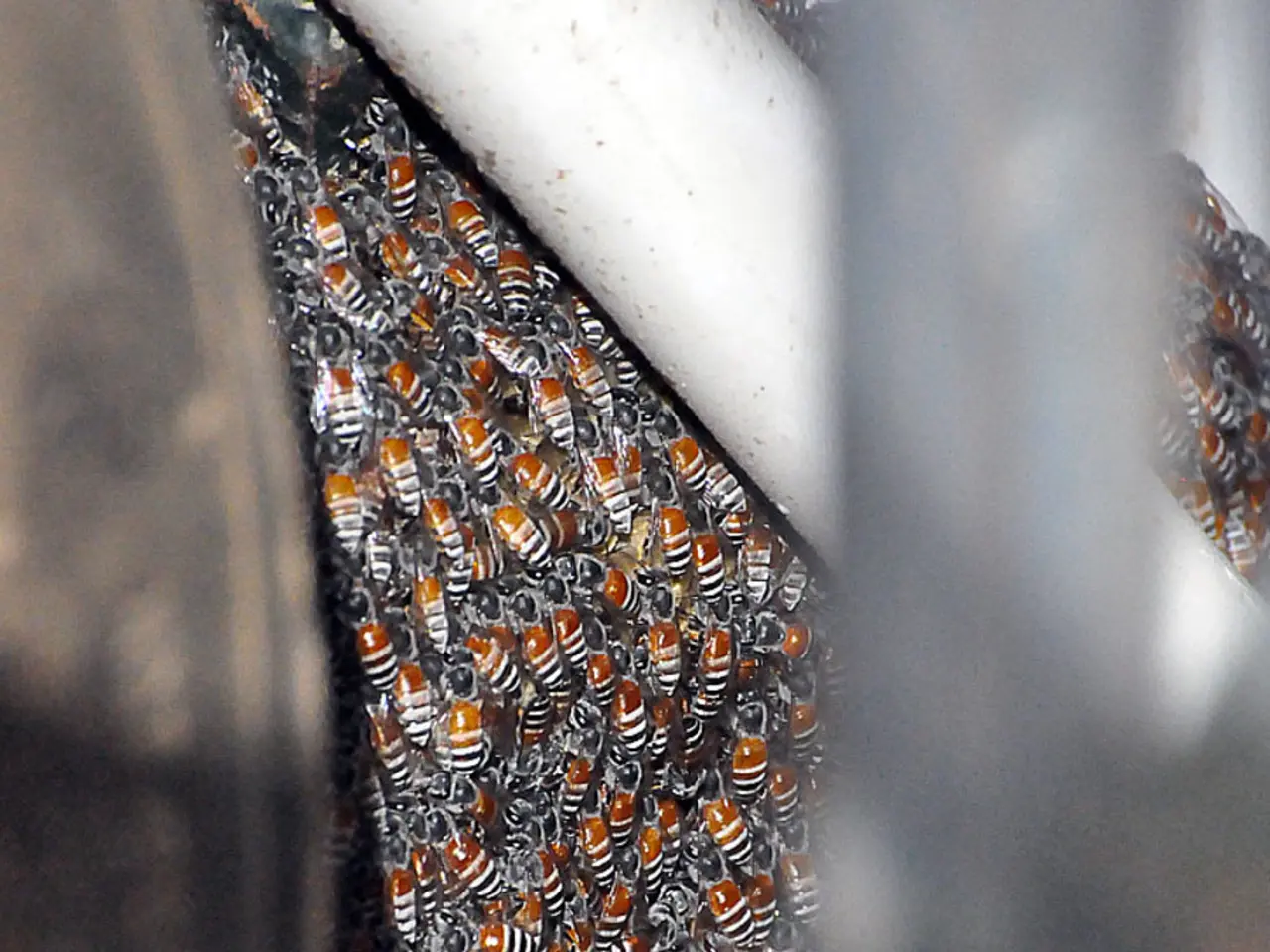Dr. Jerome Beetz Launches €2M Emmy Noether Project on Honeybee Spatial Cognition
Dr. Jerome Beetz, a Professor of Behavioral Physiology and Sociobiology at the University of Würzburg, has launched a new research project funded by the Emmy Noether Program. The project aims to understand how honeybees process spatial information, with a focus on measuring nerve signals during flight orientation using a technology called tetrode recording.
Beetz' team will investigate the integration of visual and acoustic signals in the honeybee's brain for distance measurement. They will use a flight simulator and virtual reality to create a 3D environment, allowing the insects to move freely in a virtual space similar to the real one. The project, funded with around two million euros for six years, will enable Beetz to build a junior research group consisting of two doctoral students, one postdoc researcher, and student participants who can contribute to their bachelor and master theses.
The team, led by Dr. Beetz, is interested in how spatial memory is represented in the insect brain. They aim to understand the uptake and processing of spatial information, which could have implications for our understanding of navigation and memory in insects and potentially other animals.
The Emmy Noether Program-funded project, led by Dr. Jerome Beetz, is set to advance our understanding of honeybee spatial cognition. With a focus on measuring nerve signals during flight orientation and creating virtual reality environments, the research team at the University of Würzburg is poised to make significant strides in the field of insect behavioral physiology and sociobiology.





